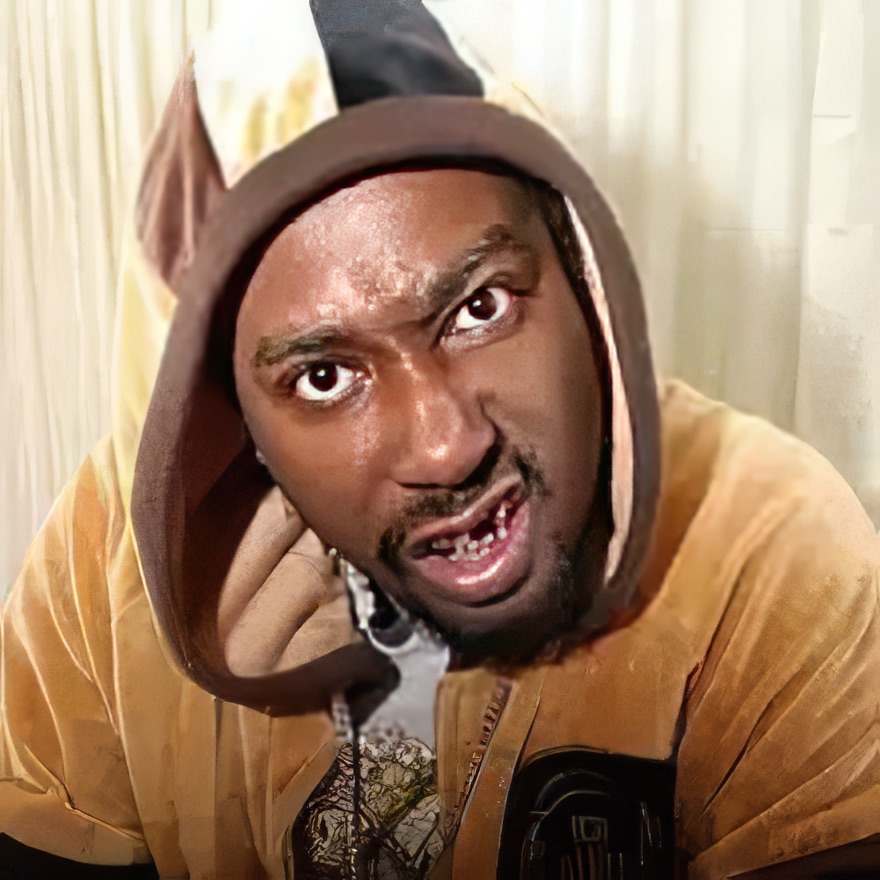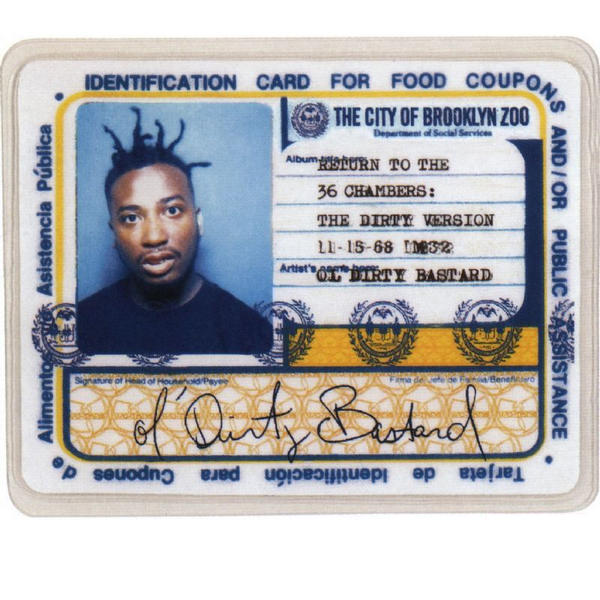Ol’ Dirty Bastard: A Brief Biography

The Enigma of ODB
Russell Tyrone Jones, known by his electrifying stage name, Ol’ Dirty Bastard (ODB), was a whirlwind in the hip-hop world. Born on November 15, 1968, in New York City, he carved a unique path in music history before his untimely death on November 13, 2004, just two days shy of his 36th birthday.
As a rapper and songwriter active from 1992 to 2004, ODB’s life was a blend of raw talent, controversy, and unexpected heroism.
A proud father of seven and closely linked to his cousins GZA and RZA, he was a crucial member of the legendary Wu-Tang Clan.
Early Life and Formation of Wu-Tang Clan
Brooklyn Roots and Martial Arts Dreams
ODB’s story began in Brooklyn, NYC, where his love for rap music and martial arts movies took root. His early life, surrounded by the gritty and vibrant streets of New York, shaped his artistic vision.
Forging a Path with Family
The formation of groups like Force of the Imperial Master and All in Together Now with his cousins laid the groundwork for something bigger. This familial collaboration was the seed that would grow into the Wu-Tang Clan.
Wu-Tang Clan’s Rise
Adding six more members to their group, they formed the Wu-Tang Clan, a name that resonated with their love for martial arts. Their debut album, Enter the Wu-Tang (36 Chambers) in 1993, was a game-changer, achieving both commercial and critical acclaim.
Music Career: Solo Success and Controversies

The Launch of a Solo Giant
March 28, 1995, marked the launch of ODB’s solo career with the album Return to the 36 Chambers: The Dirty Version. Hit singles like “Brooklyn Zoo” and “Shimmy Shimmy Ya” cemented his place in hip-hop lore.
Collaborations and Controversies
His remix of Mariah Carey’s “Fantasy” in 1995 showcased his versatility, while the welfare check cashing incident on MTV highlighted his unpredictability.
The Wu-Tang Clan’s second album, Wu-Tang Forever, in 1997 featured him less, but his impact remained significant.
Heroism and Grammy Interruption
1998 was a year of contrasts for ODB. He heroically rescued a girl from a car accident, and later, in a notorious Grammy Awards incident, he interrupted Shawn Colvin’s (Puff Daddy’s) acceptance speech to say “Wu-Tang is for the children.”
Between Jail Sentences
His second studio album, N***a Please, came out in 1999 amidst legal troubles. Collaborations during this period included working with the Insane Clown Posse and facing record label issues with Elektra Records.
A Roc-A-Fella Comeback
After his release from prison, ODB signed with Roc-A-Fella Records in 2003. His final collaborations were with Jon B. in 2004 and posthumously with Brooke Valentine in 2005.
Last Performances
His final live performances were memorable, including the inaugural Rock the Bells festival and Gathering of the Juggalos in 2004.
Legal Issues: A Tumultuous Path
ODB’s life was marred by legal troubles, starting with assault and robbery attempts in the early 1990s. Child support issues and other legal entanglements in 1997, shoplifting, and arrests from 1998 to 1999, and a shooting incident in 1999, where he was later cleared, punctuated his life.
Multiple drug charges, a brief fugitive status in 2000, and an FBI file released in 2012 painted a picture of a life constantly under scrutiny.
Death and Legacy: The End of an Era
Struggles and Sudden End
Diagnosed with bipolar disorder around 2003, ODB’s eccentric behavior often overshadowed his musical genius. His death from a drug overdose (cocaine and tramadol) on November 13, 2004, was a tragic end to a vibrant life. His funeral at Brooklyn’s Christian Cultural Center was a testament to his impact, attended by thousands.
RZA’s Reflections and Posthumous Releases
RZA, in his 2009 book The Tao of Wu, reflected on ODB’s life and influence. Posthumous releases like his vocals on Wu-Tang Clan’s “The Saga Continues” and the single “Intoxicated” in 2018, ensured that ODB’s voice and spirit continue to resonate in the world of hip-hop.
Ol’ Dirty Bastard’s journey, from the streets of Brooklyn to hip-hop stardom, was a blend of raw talent, controversy, and vulnerability. His legacy, marked by his unique style and unforgettable performances, continues to inspire and captivate fans around the world.